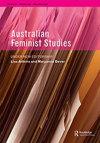#MeToo时代南极科学中的性别权力关系与性骚扰
IF 1.5
4区 社会学
Q2 WOMENS STUDIES
引用次数: 8
摘要
南极洲是一个遥远的,历史上男性化的地方。它也是一个工作场所,人们在那里的互动与权力结构和性别期望有关。今天,超过一半的早期职业极地研究人员是女性。然而,在科学、技术、工程、数学和医学(STEMM)领域,女性也比男性更有可能在实地工作中遭遇性骚扰,这使得安全、权力和骚扰问题变得相关。性别平等倡议加上#MeToo为报告性骚扰和挑战有问题的研究文化提供了新的平台,这些研究文化将科学定位为精英和性别中立。然而,“我也是”运动对南极科学的影响并不均衡。在国际媒体曝光了大卫·马尚教授对女研究生的骚扰之后,他被解职的消息被广泛引用为“我也是”运动对南极科学产生积极影响的证据。我们认为,以牺牲更广泛的文化为代价来关注个案是有问题的。我们研究了复杂的历史(如与南极景观的性别互动)、文化(如身份政治)和关系(如性别权力动力学)紧张关系,这些紧张关系支撑着最近南极科学中“我也是”的启示,以期为结构变化提供更细致的方法。本文章由计算机程序翻译,如有差异,请以英文原文为准。
Gendered Power Relations and Sexual Harassment in Antarctic Science in the Age of #MeToo
ABSTRACT Antarctica is a remote, historically masculine place. It is also a workplace, and the human interactions there are connected to power structures and gendered expectations. Today, more than half early career polar researchers are women. However, women in Science, Technology, Engineering, Mathematics, and Medicine (STEMM) are also more likely than men to experience sexual harassment during fieldwork making questions of safety, power, and harassment pertinent. Gender equity initiatives coupled with #MeToo have provided new platforms for reporting sexual harassment and challenging problematic research cultures which position science as meritocratic and gender-neutral. Yet, the impact of #MeToo in Antarctic science is uneven. Following revelations of his harassment of female graduate students in the international media, the termination of Professor David Marchant is widely cited as evidence that #MeToo is positively affecting Antarctic science. We argue it is problematic to focus on individual cases at the expense of the wider culture. We examine the complex historical (e.g. gendered interactions with the Antarctic landscape), cultural (e.g. identity politics), and relational (e.g. gendered power dynamics) tensions underpinning recent #MeToo revelations in Antarctic science with a view to providing more nuanced approaches to structural change.
求助全文
通过发布文献求助,成功后即可免费获取论文全文。
去求助
来源期刊

Australian Feminist Studies
WOMENS STUDIES-
CiteScore
2.50
自引率
0.00%
发文量
7
期刊介绍:
Australian Feminist Studies was launched in the summer of 1985 by the Research Centre for Women"s Studies at the University of Adelaide. During the subsequent two decades it has become a leading journal of feminist studies. As an international, peer-reviewed journal, Australian Feminist Studies is proud to sustain a clear political commitment to feminist teaching, research and scholarship. The journal publishes articles of the highest calibre from all around the world, that contribute to current developments and issues across a spectrum of feminisms.
 求助内容:
求助内容: 应助结果提醒方式:
应助结果提醒方式:


